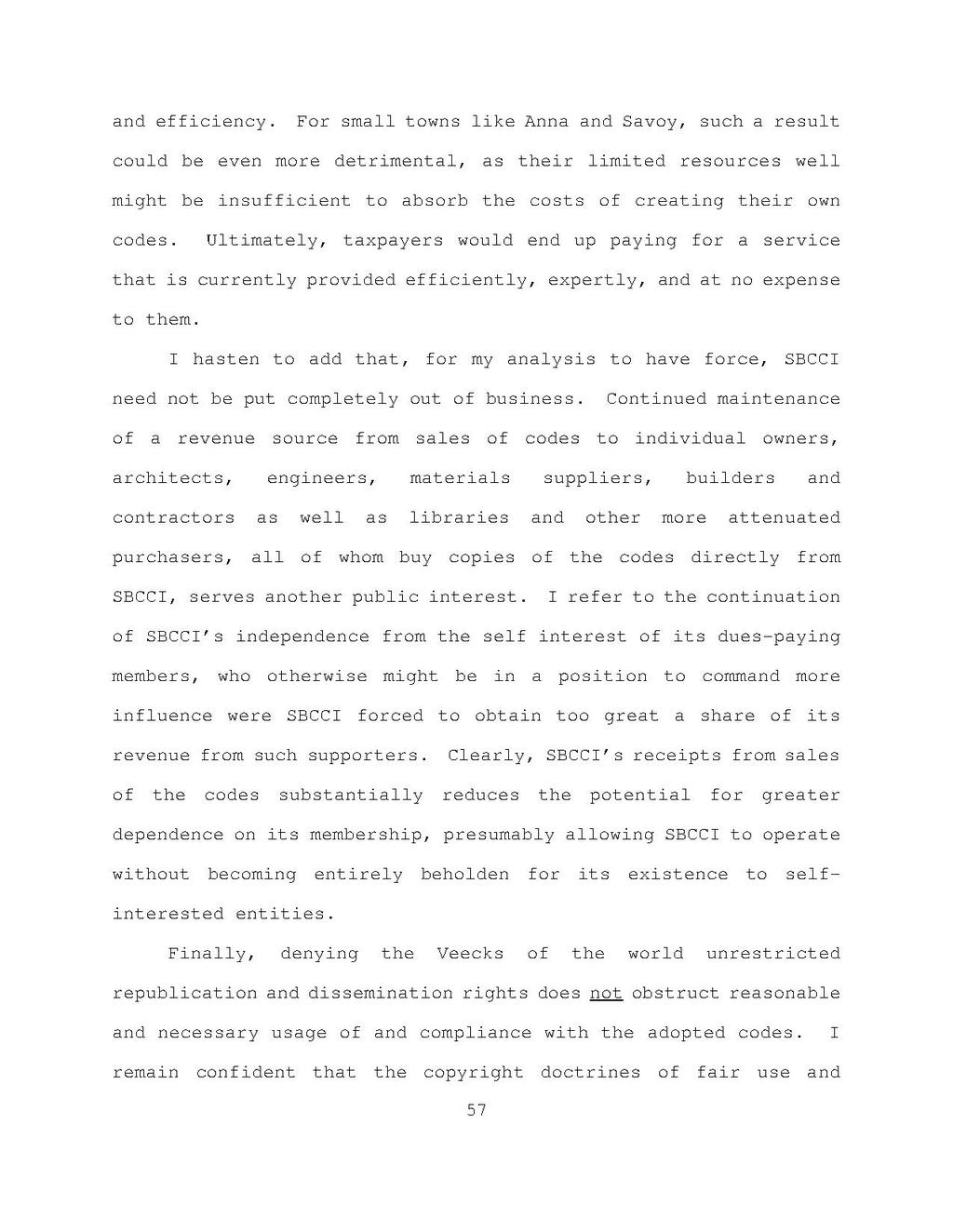and efficiency. For small towns like Anna and Savoy, such a resultcould be even more detrimental, as their limited resources well might be insufficient to absorb the costs of creating their own codes. Ultimately, taxpayers would end up paying for a service that is currently provided efficiently, expertly, and at no expense to them.
I hasten to add that, for my analysis to have force, SBCCI need not be put completely out of business. Continued maintenance of a revenue source from sales of codes to individual owners, architects, contractors engineers, as well as materials libraries suppliers, and other builders more and attenuated purchasers, all of whom buy copies of the codes directly from SBCCI, serves another public interest. I refer to the continuation of SBCCI's independence from the self interest of its dues-paying members, who otherwise might be in a position to command more influence were SBCCI forced to obtain too great a share of its revenue from such supporters. Clearly, SBCCI's receipts from sales of the codes substantially reduces the potential for greater dependence on its membership, presumably allowing SBCCI to operate without becoming entirely beholden for its existence to selfinterested entities.
Finally, denying the Veecks of the world unrestricted republication and dissemination rights does not obstruct reasonable and necessary usage of and compliance with the adopted codes. I remain confident that the copyright doctrines of fair use and
57
